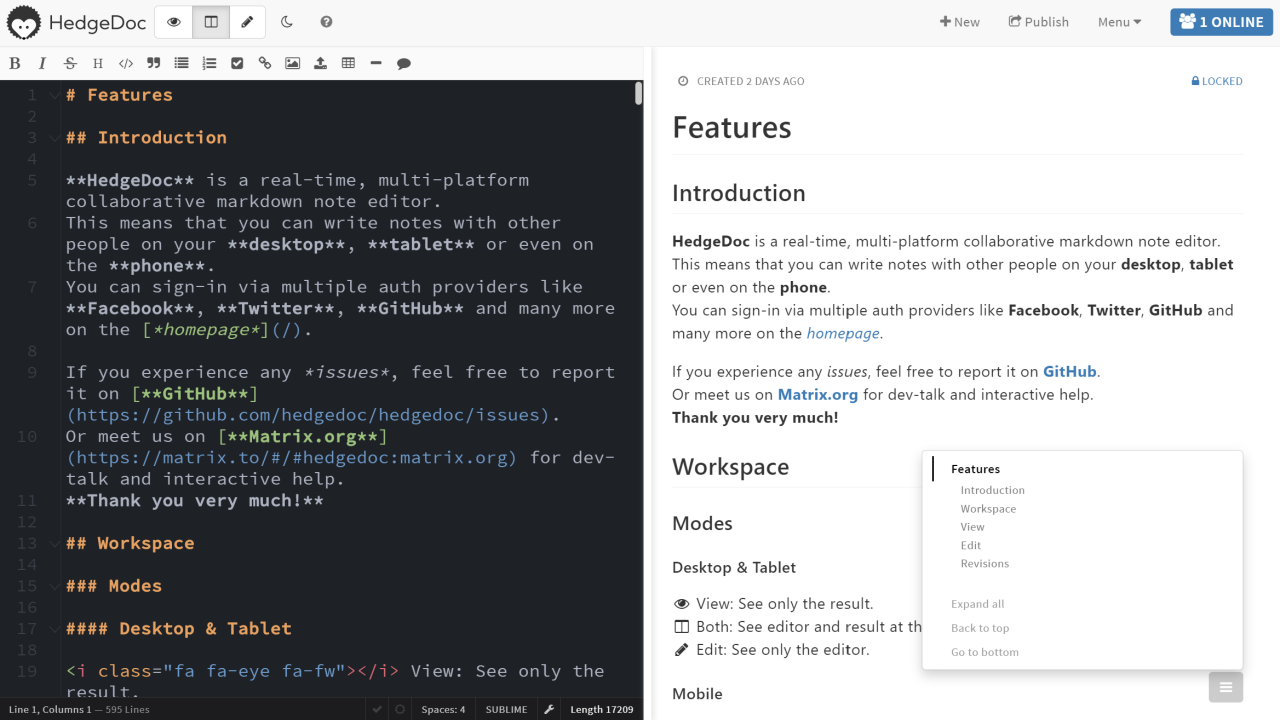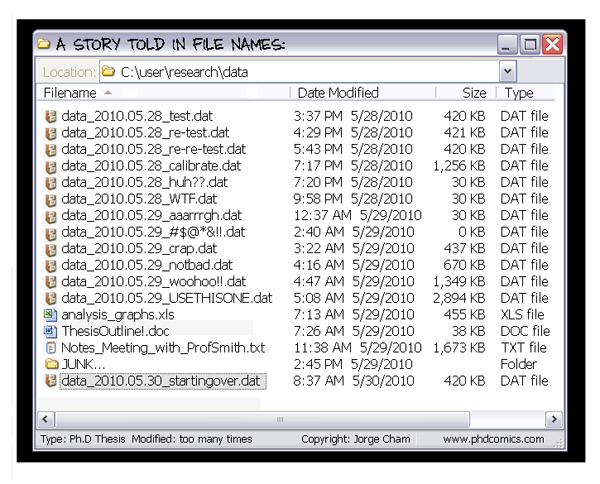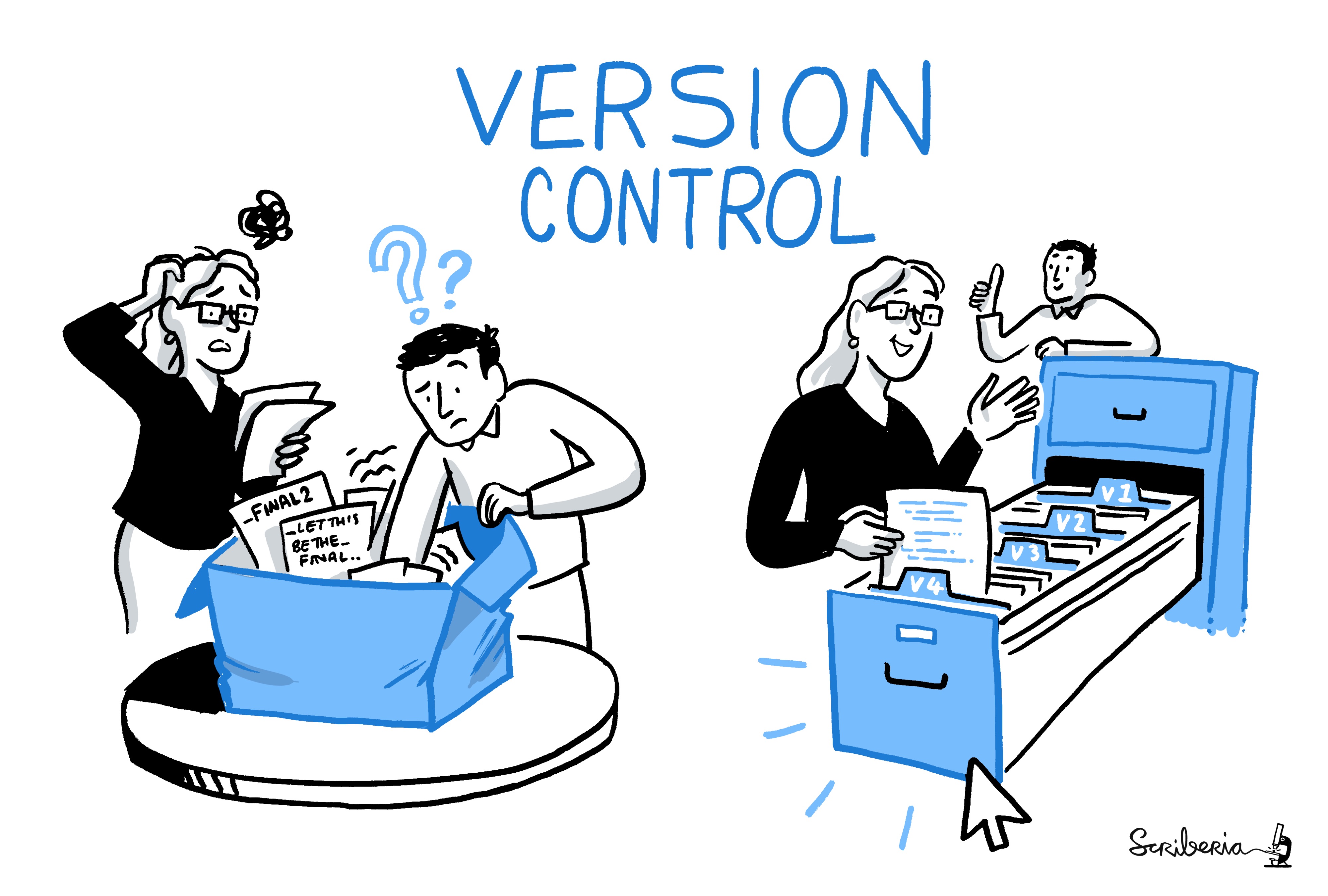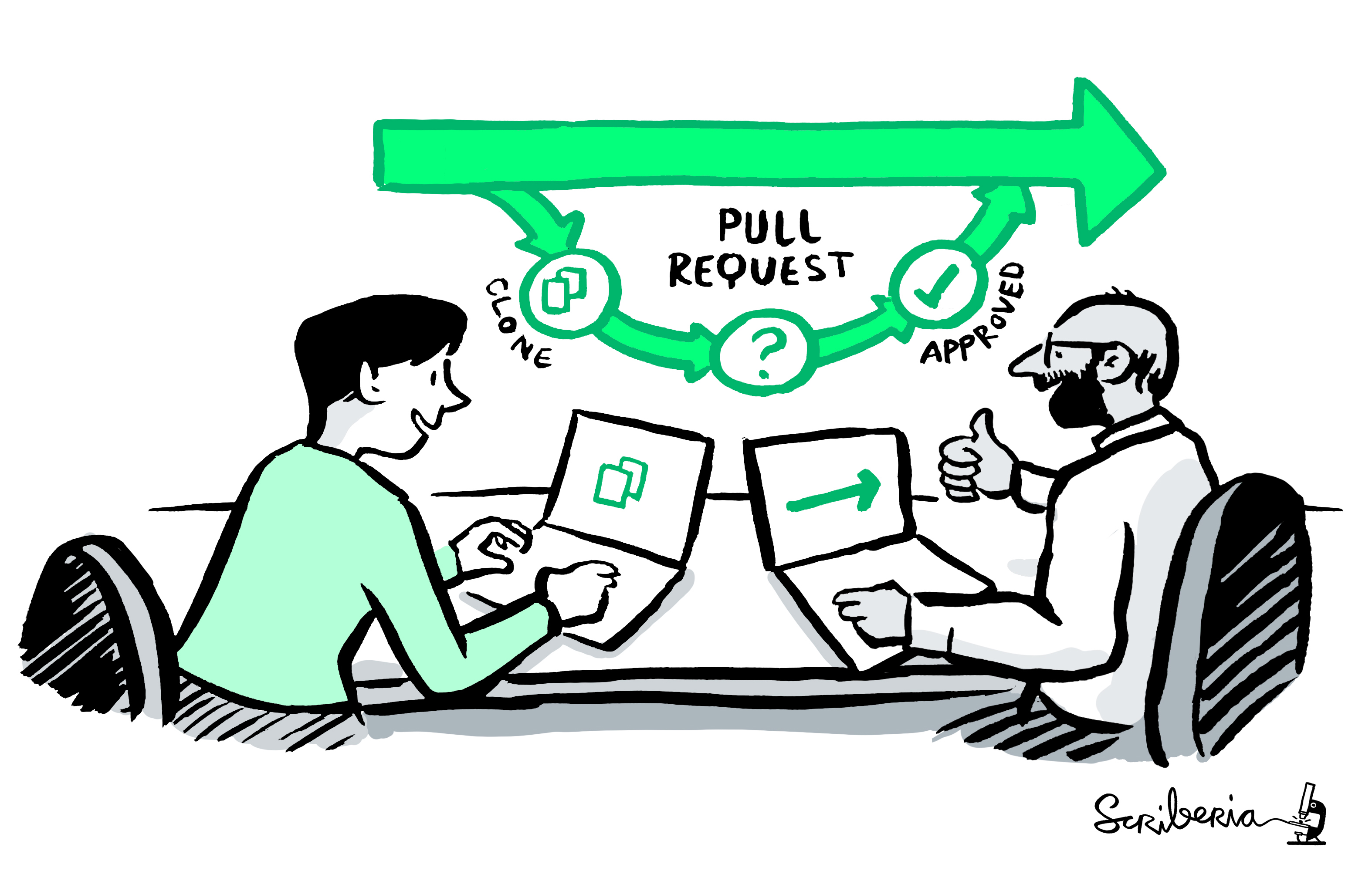| No | Date | Title | Notes | Contents | Reading | Survey |
|---|---|---|---|---|---|---|
| 1 | 2023-10-20 | Introduction to version control | Organisational matters Overview of seminar sessions Computational reproducibility Introduction to version control Introduction to Git and its advantages |
Intro to version control | Course introduction survey | |
| 2 | 2023-10-27 | Command line | File Systems Benefits of the Command Line Basic Command Line commands |
Command Line | Command Line survey | |
| 3 | 2023-11-03 | Git Basics | Installation and configuration of Git Initializing a Git repository Basic Git commands Ignoring files with .gitignore Good commit messages |
Installation, setup, first steps with Git | Installation survey, Git Basics survey | |
| 4 | 2023-11-10 | Cancelled | Cancelled | |||
| 5 | 2023-11-17 | Basic Git workflow | Practicing basic Git commands Ignoring files with .gitignore Good commit messages |
First steps with Git | Git Basics survey | |
| 6 | 2023-11-24 | Cancelled | Cancelled | |||
| 7 | 2023-12-01 | Quarto workshop | Introduction to Quarto Usecases as a scientist Markdown Syntax Using code chunks |
Workshop Slides | ||
| 8 | 2023-12-08 | Git Branching and Merging | Understanding branches in Git Creating and switching between branches Merging branches: fast-forward and recursive Resolving merge conflicts Stashing and retrieving changes Undoing changes Removing files |
Branches | Git branches survey | |
| 9 | 2023-12-15 | Introduction to GitHub | Introduction to remote repositories Creating a GitHub account Creating and managing repositories on GitHub Cloning/Forking a remote repository Pushing and pulling changes Branching and merging in a collaborative environment Graphical User Interfaces (GUIs), e.g., GitKraken |
GitHub Intro | GitHub Survey | |
| 10 | 2023-12-22 | Repetition and practice | Initializing repository Staging and committing Creating and merging branches |
|||
| 11 | 2024-01-12 | GitHub: Collaboration | Organizing Git repositories and projects Collaborating with team members using issues and pull requests Using pull requests Understanding different Git workflows Introduction to Gitflow workflow Working with feature branches in Gitflow |
|||
| 12 | 2024-01-19 | GitHub: Advanced, Tags/Releases | README.md Licenses Contributions Forking Practicing GitHub workflow Introduction to tags and their importance Best practices for tagging in Git Integration with Zenodo |
|||
| 13 | 2024-01-26 | Introduction to DataLad - Version control of (large) datasets | Guest Lecture by Adina Wagner (DataLad Developer & Project Lead of the DataLad Handbook) | |||
| 14 | 2024-02-02 | Summary & Wrap-Up | Summary & Wrap-Up |
Effective Progress Tracking and Collaboration: An Introduction to Version Control of Code and Data
Session 1
October 20, 2023
Logistics and admin
Team
Who are you?
- Your name?
- Your preferred pronouns?
- Which study program are you currently enrolled in?
- What did you study before and where?
- What do you expect from this course?
- A fun fact about you?
- Your mood on rubber duck scale?

Course overview
- Date: Winter semester 2023/24 (Oct to Feb)
- Time: Fridays, 10:15 to 11:45 am (90 minutes)
- Room: UHH, VMP 5, Room 4047
- Instructor: Dr. Lennart Wittkuhn
- Assistant: Konrad Pagenstedt
- Event: Seminar
- Credits: 4,0
- Language: English / German
- Tag: PsyM14-PsyWB-K02
What will the average seminar session look like?
The course will consist of up to 14 sessions (90 minutes each)
- Content Review (up to 30 minutes):
Course participants engage with the online materials, supplemented by concise presentations by the instructors. Some course preparation may occur outside of the class.
- Interactive Discussions & Quizzes (up to 15 minutes):
Course participants collectively address any inquiries related to the session’s content and online materials. Instructor-led quiz questions may also be interspersed throughout.
- Exercises & Implementation (up to 60 minutes):
Course participants actively delve into hands-on exercises and assignments.
Logistics
- You need a laptop. Talk to use if you don’t have a laptop.
Note, that course participants are not required (but are of course free) to work on course materials outside of class time. All course contents will be covered during class time.
Schedule
Course Website
Version Control Book
Exercises, quizzes & surveys
- we use surveys to ask you questions and implement exercises or quizzes
- implemented in the formr survey framework
Anonymity & data usage
- all raw data are kept anonymous, will only be used for the course and never shared publicly
- the data will be used exclusively for educational purposes as part of the course
- if responses are shared as part of the course, they will be aggregated to ensure anonymity is maintained
- you can also complete survey without providing a personal codeword
- if you want your data to be deleted, send an email with your codeword to sekretariat-luv.psych@uni-hamburg.de
Collaborative notes

HedgeDoc (UHH Pad)
- HedgeDoc (UHH Pad)
- Notepad for Session 1
- Edit notes using Markdown (see HedgeDoc Features and Session 4)
- No account or log-in required
- Notes are public! Don’t use it for personal or sensitive data!
- One notepad per session
- Notepad will be locked at the next session

Your role, questions and interactions
Activate participation
- This is a pass / fail course
- Requirement 1: Come to at least 12 out of 14 sessions (85%) and sign the attendance list
- Requirement 2: Complete the exercises and quizzes (in class and online)
Questions & discussions during class time
- Ask questions! There are no stupid questions!
- Share your ideas in writing via the notepads
- Participate in the discussions
Questions & discussions outside of class time
- Ask questions! There are no stupid questions!
- Share your ideas in writing via the notepads
- Send questions to our mailing list: version-control-course.psych@lists.uni-hamburg.de
- Send questions to Lennart and / or Konrad
- Office hours by appointment
- Give use feedback!
Code of Conduct
During this course, we want to ensure a safe, productive, and welcoming environment for everyone who attends. All participants and speakers are expected to abide by this code of conduct. We do not tolerate any form of discrimination or harassment in any form or by any means. If you experience harassment or hear of any incidents of unacceptable behavior, please reach out to the course instructor, Lennart Wittkuhn (lennart.wittkuhn@uni-hamburg.de), so that we can take the appropriate action.
Unacceptable behavior is defined as:
- Harassment, intimidation, or discrimination in any form, verbal abuse of any attendee, speaker, or other person. Examples include, but are not limited to, verbal comments related to gender, sexual orientation, disability, physical appearance, body size, race, religion, national origin, inappropriate use of nudity and/or sexual images in public spaces or in presentations, or threatening or stalking.
- Disruption of presentations throughout the course. We ask all participants to comply to the instructions of the speaker with regard to dedicated discussion space and time.
- Participants should not take pictures of any activity in the course room without asking all involved participants for consent and receiving this consent.
A first violation of this code of conduct will result in a warning, and subsequent violations by the same person can result in the immediate removal from the course without further warning. The organizers also reserve the right to prohibit attendance of excluded participants from similar future workshops, courses or meetings they organize.
Two RA positions in our group!
Version Control of Code & Data
- 📓 Tasks: Support our teaching project!
- 📆 Duration: as soon as possible until March 31 2024
- 🕐 Time: flexible, up to 37 hours / month (WHK)
- 💰 Salary: 12.00 € / hour (SHK) / 13.95 € / hour (WHK)
- ✉️ Contact: lennart.wittkuhn@uni-hamburg.de


Memory reactivation in older adults
- 📓 Tasks: Support of fMRI data collection
- 📆 Duration: as soon as possible
- 🕐 Time: flexible, 60 - 80 hours / month
- 💰 Salary: 12.00 € / hour (SHK) / 13.95 € / hour (WHK)
- ✉️ Contact: erc-studies-luv.psych@uni-hamburg.de
Survey results
Introduction to version control
Learning objectives
At the end of this session, you should be able to answer the following questions:
- What is version control?
- Why is version control useful (for research)?
- What are Git and GitHub?
- What is the difference between Git and GitHub?
Your turn
Read Chapter 1: “Introduction to Version Control” in the Version Control Book
Why we need version control …
… for code (text files) 
… for data (binary files) 
When everything is relevant …
… track everything.
What is version control
“Version control is a systematic approach to record changes made in a […] set of files, over time. This allows you and your collaborators to track the history, see what changed, and recall specific versions later […]” (Turing Way)
keep track of changes in a directory (a “repository”)
take snapshots (“commits”) of your repo at any time
know the history: what was changed when by whom
compare commits and go back to any previous state
work on parallel “branches” & flexibly “merge” them
“push” your repo to a “remote” location & share it
share repos on platforms like GitHub or GitLab
work together on the same files at the same time
others can read, copy, edit and suggest changes
make your repo public and openly share your work
What are git and DataLad?
- most popular version control system
- free, open-source command-line tool
- graphical user interfaces exist, e.g., GitKraken
- standard tool for most (all?) software developers
- 100 million GitHub users 1
- “git for (large) data”
- free, open-source command-line tool
- builds on top of git and git-annex
- allows to version control arbitrarily large datasets 2
- graphical user interface exists: DataLad Gooey
Note: We will mainly focus on Git and only refer to DataLad as an outlook.
DataLad
Schedule
| No | Date | Title | Notes | Contents | Reading | Survey |
|---|---|---|---|---|---|---|
| 1 | 2023-10-20 | Introduction to version control | Organisational matters Overview of seminar sessions Computational reproducibility Introduction to version control Introduction to Git and its advantages |
Intro to version control | Course introduction survey | |
| 2 | 2023-10-27 | Command line | File Systems Benefits of the Command Line Basic Command Line commands |
Command Line | Command Line survey | |
| 3 | 2023-11-03 | Git Basics | Installation and configuration of Git Initializing a Git repository Basic Git commands Ignoring files with .gitignore Good commit messages |
Installation, setup, first steps with Git | Installation survey, Git Basics survey | |
| 4 | 2023-11-10 | Cancelled | Cancelled | |||
| 5 | 2023-11-17 | Basic Git workflow | Practicing basic Git commands Ignoring files with .gitignore Good commit messages |
First steps with Git | Git Basics survey | |
| 6 | 2023-11-24 | Cancelled | Cancelled | |||
| 7 | 2023-12-01 | Quarto workshop | Introduction to Quarto Usecases as a scientist Markdown Syntax Using code chunks |
Workshop Slides | ||
| 8 | 2023-12-08 | Git Branching and Merging | Understanding branches in Git Creating and switching between branches Merging branches: fast-forward and recursive Resolving merge conflicts Stashing and retrieving changes Undoing changes Removing files |
Branches | Git branches survey | |
| 9 | 2023-12-15 | Introduction to GitHub | Introduction to remote repositories Creating a GitHub account Creating and managing repositories on GitHub Cloning/Forking a remote repository Pushing and pulling changes Branching and merging in a collaborative environment Graphical User Interfaces (GUIs), e.g., GitKraken |
GitHub Intro | GitHub Survey | |
| 10 | 2023-12-22 | Repetition and practice | Initializing repository Staging and committing Creating and merging branches |
|||
| 11 | 2024-01-12 | GitHub: Collaboration | Organizing Git repositories and projects Collaborating with team members using issues and pull requests Using pull requests Understanding different Git workflows Introduction to Gitflow workflow Working with feature branches in Gitflow |
|||
| 12 | 2024-01-19 | GitHub: Advanced, Tags/Releases | README.md Licenses Contributions Forking Practicing GitHub workflow Introduction to tags and their importance Best practices for tagging in Git Integration with Zenodo |
|||
| 13 | 2024-01-26 | Introduction to DataLad - Version control of (large) datasets | Guest Lecture by Adina Wagner (DataLad Developer & Project Lead of the DataLad Handbook) | |||
| 14 | 2024-02-02 | Summary & Wrap-Up | Summary & Wrap-Up |
Version control of code and data






